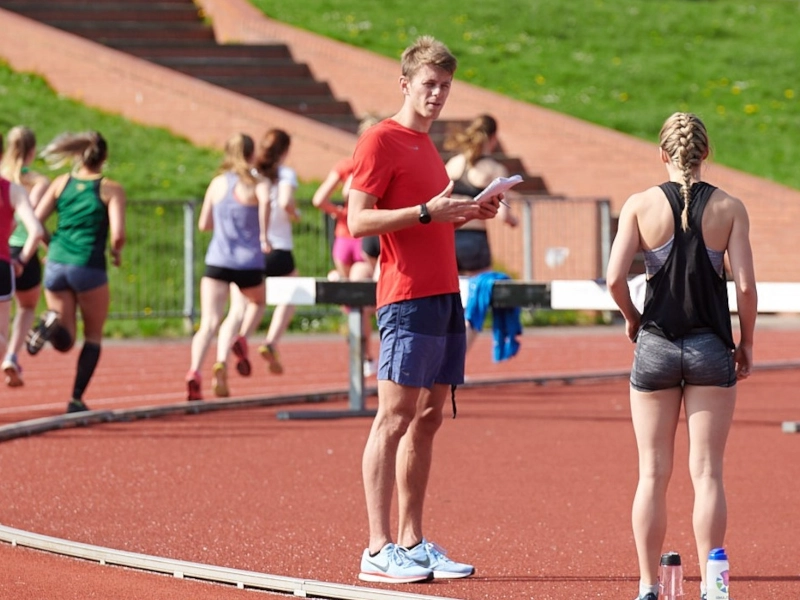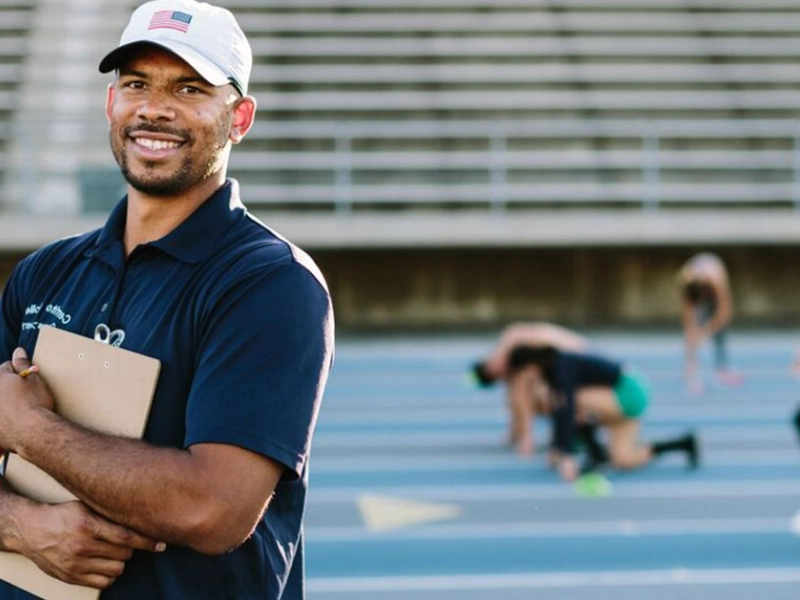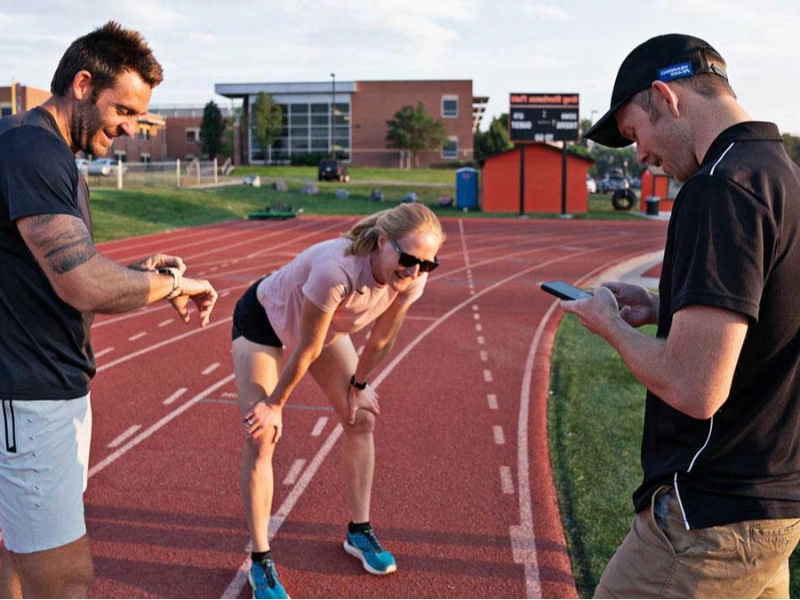A fulfilling profession, athletics coaching lets people share their love of sports and enable athletes to realize their best potential. Whether dealing with professional athletes or young teams, coaches are rather important in forming not just the athletes' abilities but also their character and attitude. This post details the necessary abilities, credentials, and pragmatic actions to thrive in this exciting sector, so guiding a passion for athletics into a satisfying coaching career.

Development of training plans, advice, and encouragement of athletes to reach their objectives fall to athletics coaches. This function encompasses knowledge of the physical and psychological components of performance, therefore transcending mere instructional methods. Every athlete's strengths and shortcomings must be evaluated by coaches, who then create training plans specifically for each. In this capacity, good communication is absolutely vital. Clear directions and helpful criticism from coaches will enable athletes to grow. They also have to create a favorable surroundings that supports resilience, discipline, and cooperation. Strong ties between coaches and their players help them to motivate them to challenge their boundaries and aim for excellence. A good career in athletics coaching starts with an awareness of the several roles a coach plays.

Getting appropriate credentials is crucial if one wants to convert a love of sports into a coaching job. Many coaches begin their journey by working toward qualifications from reputable companies, such the American Sport Education Program (ASEP) or the National Federation of State High School Associations (NFHS). These certificates offer basic understanding of safety procedures, athlete development, and coaching techniques. Apart from official certificates, having real-world experience is priceless. Working with local sports teams or volunteering as an assistant coach can give practical instruction and understanding of the coaching process. Attending seminars and clinics helps many coaches stay current on the newest coaching approaches and sports industry trends as well. A coach's credibility and efficacy can be much improved by laying a strong educational basis and acquiring useful experience.

A coaching philosophy is a personal framework used by a coach to direct his or her approach toward athlete development. It covers ideas about rivalry, teamwork, drive, and the general goal of athletics. By means of a coherent coaching philosophy, coaches can effectively convey their beliefs and expectations to their athletes, therefore promoting a harmonic team culture. People should examine their personal experiences as players and think about what they feel to be necessary for success in sports in order to develop a coaching perspective. One could stress mental toughness, sportsmanship, and diligence here. Not only can a well-defined philosophy influence coaching strategies, but it also helps build respect and trust between coaches and athletes. Through clear communication of their philosophy, coaches may establish surroundings consistent with their ideals and help their athletes to grow holistically.

Good coaching depends mostly on developing close relationships with athletes. A good training environment depends on trust and respect to make athletes feel free to share their worries and goals. Coaches should spend some time learning about the particular personality, goals, and difficulties of every athlete. Frequent one-on-one meetings enable coaches to establish honest communication by helping them to really connect with their players. Developing team-building events can also help to foster camaraderie and cooperation among team members by strengthening relationships. Athletes under a supportive coaching relationship are encouraged to grow resilient, learn from failures, and take calculated chances. Giving relationship-building top priority will help coaches greatly improve the performance and whole sports experience of their athletes.
The degree of competitiveness and the particular sport will greatly affect the terrain of athletic coaching. From juvenile leagues and high schools to university and professional teams, coaches can operate at many levels. Every level offers different chances and difficulties that call for different approaches by coaches. Networking inside the sports community is absolutely vital for anyone hoping to coach either professionally or in a university. Conferences, membership in coaching groups, and networking with other coaches can create avenues to employment and mentoring. Maintaining competitiveness on the field also depends on knowing about changes in sports science and athlete development. Effective navigation of the coaching terrain can help aspirant coaches to position themselves for success in their chosen field of athletics.
An always changing field, athletics coaching calls for an attitude toward lifelong learning. Coaches have to keep educated as sports science develops and new training approaches show up to offer their athletes the greatest direction. By means of seminars, online courses, and professional publications, continuous education helps a coach to improve their knowledge and competency. Moreover, getting comments from athletes and peers might offer insightful analysis of coaching efficacy. When coaches consider events—both achievements and difficulties—they can hone their methods and create fresh plans. Adopting a lifetime of learning not only helps coaches in their professional life but also provides a good model for their athletes, motivating them to seek development on their athletic paths.
Turning a love of sports into a coaching career can ultimately be rather rewarding. By guiding their athletes toward abilities outside of the field of competition, coaches have the chance to have a long-lasting influence on their life. One of the most satisfying things about coaching is seeing athletes rise above obstacles and reach their objectives. Combining their passion of sports with good teaching techniques would help people to build a significant profession that motivates others. Becoming a good athletics coach calls for commitment, lifelong learning, and a real love of seeing athletes achieve. Anyone with the correct attitude and dedication may turn their love of athletics into a successful coaching career.